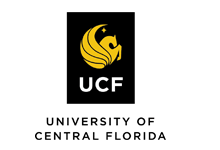Article Title
Abstract
In the past decade, spending on experiences relative to other types of consumer spending has increased dramatically. Companies with an experience economy mindset focus on differentiation as opposed to standardization and rely on innovation activities for growth. This design research project examined how an urban park and entertainment venue leveraged its unique brand and core experience to design and innovate memorable guest experiences. The Quartyard study integrated key concepts of experience economy logic and memorable tourism experiences with principles of human centered design. Interviews were conducted with key stakeholders to include the architects, general manager, members of the local business association, nearby residents, and guests to identify key themes and to frame the design challenge. A series of idea generation sessions were conducted to brainstorm events and activations aligned with the core experience concept. Personas and journey maps were created, and a select number of activations were prototyped and evaluated. Qualitative results comprised views of an emerging concept called neo-localism in the literature. These included being non-corporate, environmentally responsible, empowered and self-sufficient, authentic, and community building. Findings point to the importance of shared vision to motivate innovation in a context where innovation is collective, incremental, and ongoing.
Creative Commons License

This work is licensed under a Creative Commons Attribution-NonCommercial-No Derivative Works 4.0 International License.
Recommended Citation
Sipe, Lori J.
(2018)
"Leveraging neo-localism for experience innovation: A case study of an urban park and entertainment venue,"
Journal of Themed Experience and Attractions Studies: Vol. 1:
Iss.
1, Article 4.
Available at:
https://stars.library.ucf.edu/jteas/vol1/iss1/4
Included in
Environmental Design Commons, Interactive Arts Commons, Theatre and Performance Studies Commons




